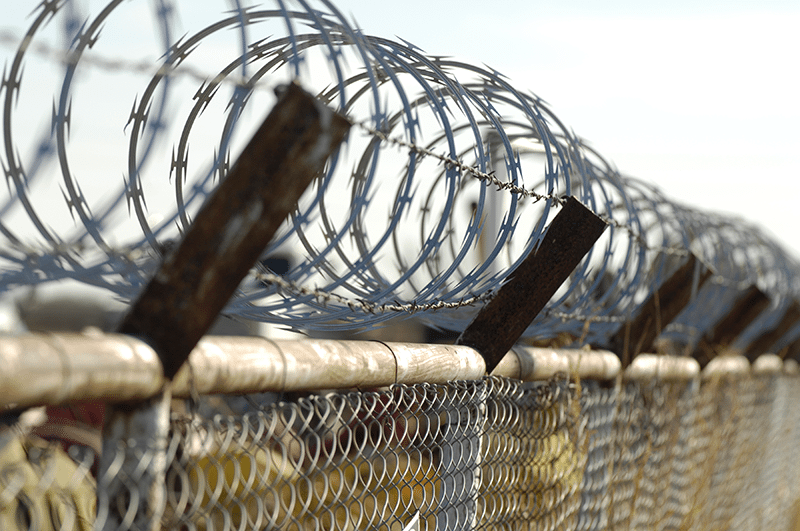Patents: Beyond the Basics – Current Risks and Opportunities (Part 4)

The world of patents is constantly changing. Recent developments could have a major effect on your business. It’s important to stay one step ahead to avoid surprises.
That’s why we enlisted the help of attorneys at McCormick, Paulding & Huber. They’ve prepared a four-part Q&A series that will answer questions relating to patent trolls litigation, the new environment since Leahy-Smith America Invests Act (AIA) and more.
This is part four in the series.
Q: Is “time to market” more important than IP?
A: As mentioned in our previous Q&A on patentability of software inventions, the inventors of Tinder ran out of money and abandoned the patent application that could have protected their business from competitors. Although patents are by no means the only intellectual property relevant to starting a business, they are the only form of intellectual property in which there can be a “race” between marketing and legal protection. This Q&A will focus on the need for inventors and entrepreneurs to appropriately pace both marketing and legal efforts.
Running out of money, and therefore dropping a patent application, is a fairly frequent occurrence for startup inventors. However, abandoning an investment in patent protection turns that investment into wasted time and money and can significantly impair the long-term value of a business. Aside from insufficient funds, what else prompts inventors to abandon applications for patents that could protect valuable concepts? Time to market is the answer. Entrepreneurs may need to rush to get their product to market before a competitor and, in the process, may shift their resources and focus to that effort (and away from patenting).
Yet it is important to understand the value of a patent: It not only can deter competitors but also can provide an entrepreneur with a “license to sue” those who imitate an inventive product or service. Generally speaking, particularly in light of Supreme Court decisions during the past decade, a patent is most likely to be valuable when it protects an already-valuable product or service. Moreover, a patent is easier to obtain when it is funded by revenues from a going business.
Think of a patent as a fence, and imagine that the patent fence surrounds a property on which you intend to build your business. If you never build a business on the property, it has no value to you—no matter how much money you may have put into the fence. On the other hand, if you build the business but don’t maintain the fence, then competitors could sneak onto your property and steal some of your business. It’s a bit of a chicken-and-egg conundrum but underscores the need to pursue business-building strategies and patenting in parallel when starting a business.
Many entrepreneurs underestimate the costs of patent protection, as well as the time that it will take to start making money from their startup business. Accordingly, instead of aggressively seeking capital early on, entrepreneurs launching their first business will often try to bootstrap.
Then, when resources get tight and they need to make hard decisions about the cost and value of continuing to pursue a patent application, these poorly funded first-time entrepreneurs often will look only at the low immediate value (cash flow) of their business “property” and at the high immediate cost (legal fees) of the “fence” that we are trying to build for them, and will decide that it doesn’t make sense to continue with the patent. The lack of a fence then makes the property unattractive to investors and prospective acquirers and limits or renders impossible strategies to grow or profitably exit the business.
Thus, failure to properly build a business can lead to a decision not to fund completion of a patent, and this in turn may further devalue the business.
Usually, a business that starts slowly does not lack a good idea, but instead lacks an appropriate level of funding, not only for patenting but also for effective marketing. Effective marketing can be very expensive (even more costly than patent protection), but it is essential to building the value of a business property so that a patent fence becomes cost effective. Although business strategy is beyond my expertise as an attorney, what I have seen in practice is that businesses without effective marketing strategies wind up unable to sustain an effective legal strategy. Stated differently, if you cannot find the time or funds to market your invention, then you are not likely ever to get much benefit from patenting your invention.
This is not to say that marketing efforts should preclude legal protections. Indeed, first-time entrepreneurs may find it very helpful to partner with an experienced marketing team. The inherent risk of this option is that many very good marketers have become very good by honing a wolfish sense of self-interest. An outside marketing team’s self-interest will serve an entrepreneur well, only so long as a “leash” (appropriate and enforceable professional services contract) is in place alongside a sturdy fence (patent protection or at least a pending patent application for the idea that you want them to market). Given the appropriate legal protections, outside marketing help can be a great asset to a startup business; without appropriate legal protections, a marketing team may run wild with an idea, to the detriment of the entrepreneur who brought the team in.
Thus, overall, as you push to get your product to market in a timely fashion, it is advisable to address both marketing and legal efforts in parallel; shortchanging either can adversely impact your business.
Special thanks to our Q&A part four contributor from McCormick, Paulding & Huber LLP:
Alan Harrison
 Alan Harrison is an associate in the Hartford office of the law firm McCormick, Paulding & Huber LLP, which has focused exclusively on intellectual property law for more than 100 years. Before becoming an attorney, he trained as a mechanical and nuclear engineer. He is experienced in patent and trademark prosecution and enforcement, business startups and intellectual property transactions. You can contact Alan at Harrison@ip-lawyers.com.
Alan Harrison is an associate in the Hartford office of the law firm McCormick, Paulding & Huber LLP, which has focused exclusively on intellectual property law for more than 100 years. Before becoming an attorney, he trained as a mechanical and nuclear engineer. He is experienced in patent and trademark prosecution and enforcement, business startups and intellectual property transactions. You can contact Alan at Harrison@ip-lawyers.com.